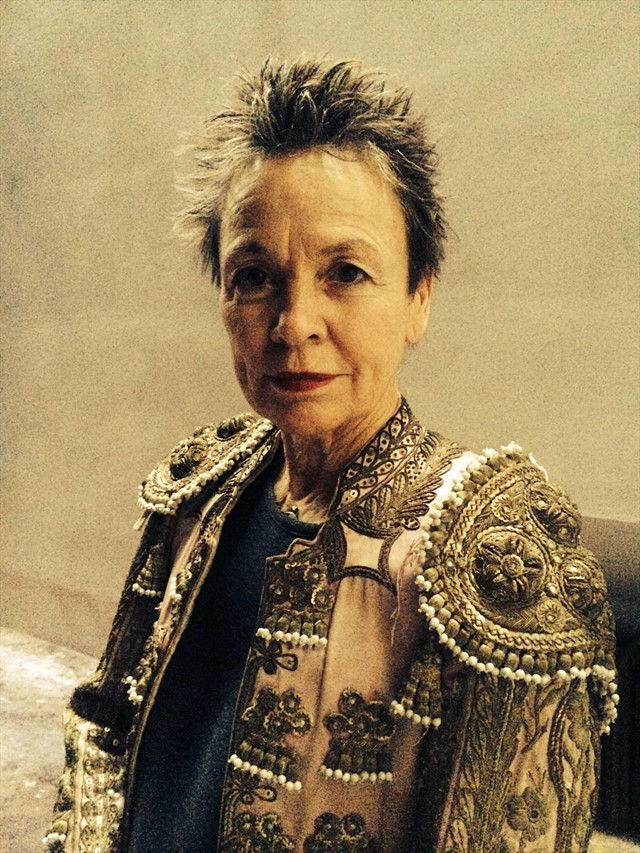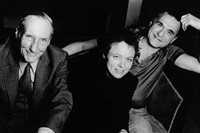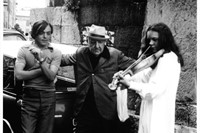Delve into the marvellous brain of artist and musician Laurie Anderson, alongside with the memories of those who know and admire her
On board a train to upstate New York a couple of weeks before Christmas, the pioneering performance artist Laurie Anderson took some time out to talk to her friend, esteemed writer Michael Azerrad, for his delightful feature on her life and work in the new issue of AnOther Magazine. Along the way, he treated her to a pop-up quiz from friends and collaborators spanning her long and rich career, including Antony Hegarty, Marina Abramović, Jonas Mekas and John Giorno. Here we present a preview of their sinuous conversation, interspersed with extracts from a series of tributes given by peers and admirers.
Laurie on Lou Reed: “Lou did give my life meaning […] A partner does that, and just defines you, much more than I thought. As I’m living without it, it’s very extreme. He was somebody who I felt completely understood me. And I felt the same about him. He completely understood me and I’d never had that before. And it was really wild. And to be known is something that is just colossal. That’s what I miss.”
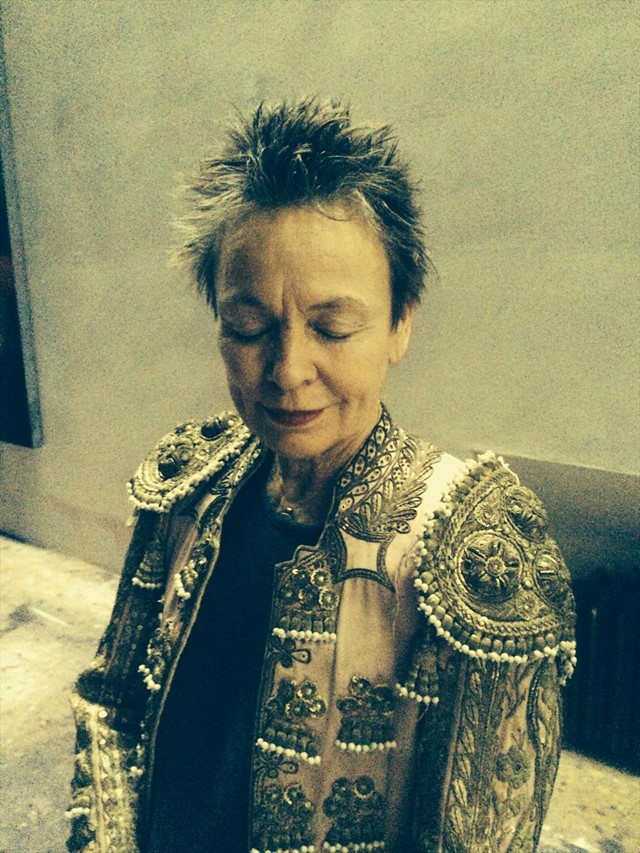
Arto Lindsay on Laurie: “Laurie is one of the only truly political artists I know. Far from preaching to the converted she manages to make us uncomfortable with our most closely held convictions. She can connect our political dilemmas to our personal failures and yearnings.”
“Lou did give my life meaning... He completely understood me and I’d never had that before... And to be known is something that is just colossal” — Laurie Anderson
Laurie on Bob Dylan: “Let’s say you really could change the world through music – it would be Bob Dylan who could do it. Because he was the first person to write about losers. He romanticises losers and it was so touching to people – wow, I’m a loser and he just wrote a song about me! He had a very soulful approach to that. And that was a very valuable thing – I see that as his biggest contribution.”
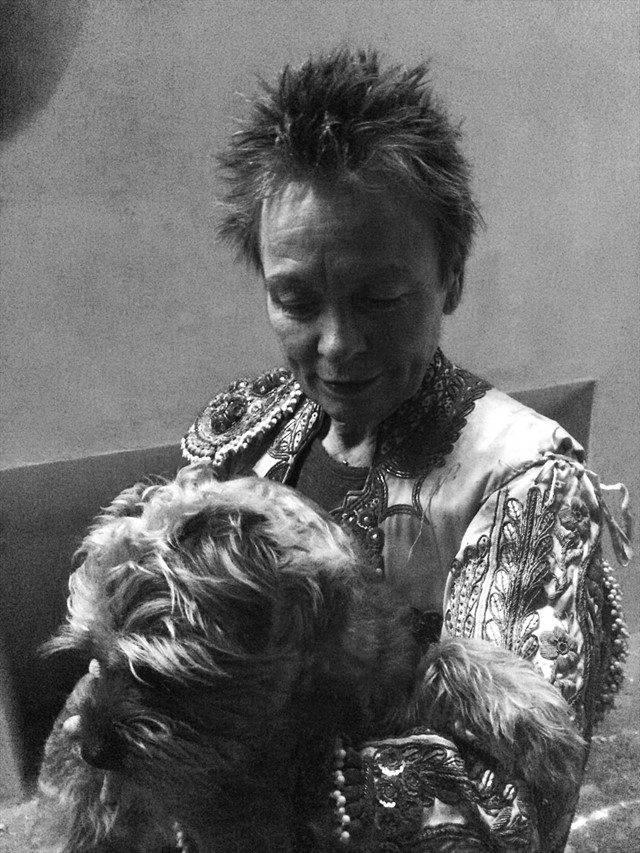
Nico Muhly on Laurie: “When I was little, I used to think that God’s voice either sounded like Terry Gross or Laurie Anderson: a disembodied voice telling some fundamental truth about the world.”
Laurie on feeling free: “I want people to feel freer and I want myself to feel freer – that’s my whole goal, so you’re not trapped into your life or the expectations people have of you, how you’re supposed to behave. A lot of the work that I do, I don’t really know how to do at all… [And] it always makes me nervous to do things I don’t really know how to do.”
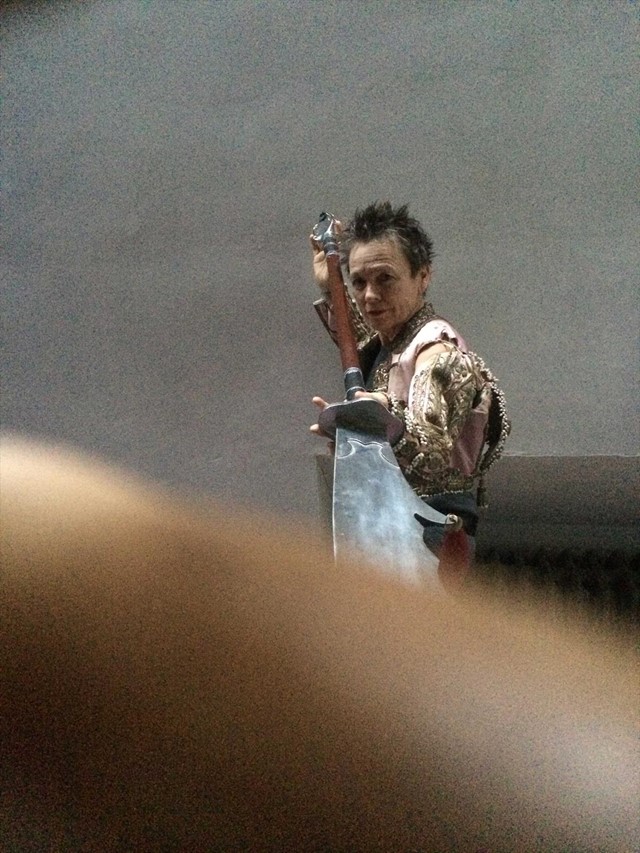
RoseLee Goldberg on Laurie: “After 9/11, I couldn’t think of a way to face my NYU students after that traumatic week. Instead, I walked into the classroom and played O Superman and let it run on a loop.”
“I want people to feel freer and I want myself to feel freer – that’s my whole goal, so you’re not trapped into your life” — Laurie Anderson
Laurie on William Burroughs: “Burroughs was my mentor. I toured with him and I learned from him – principally, the word ‘you.’ He used the word ‘you’ in a way I’d never heard. He was a performer, and he was talking to people. He was talking to people. And that was a big revelation to me. In fact, I’m going to make a note: write a song called ‘You’ for Uncle Bill.”
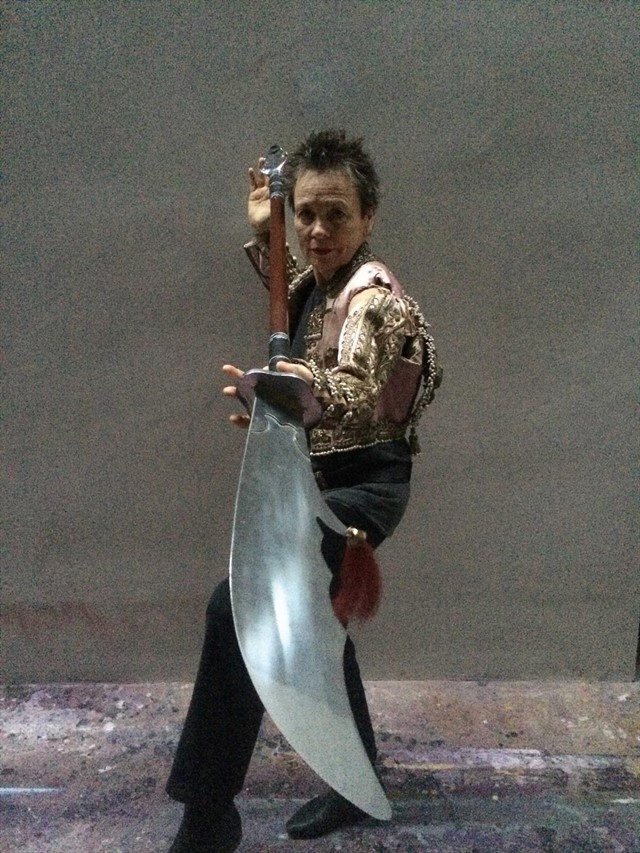
Vito Acconci on Laurie: “When Laurie talks, her voice comes not from her mouth but from somewhere outside herself, outside of her body, in front of her body. She’s throwing her voice. She stands still while her voice traverses in front of her, one step after another in front of her, and sometimes to every other side.”
Laurie on failure: “Failure happens all the time. If you decide that you’re going to like only the things that you imagine you’re going to make, then everything else is a failure and you’ll spend a lot of time in misery.”
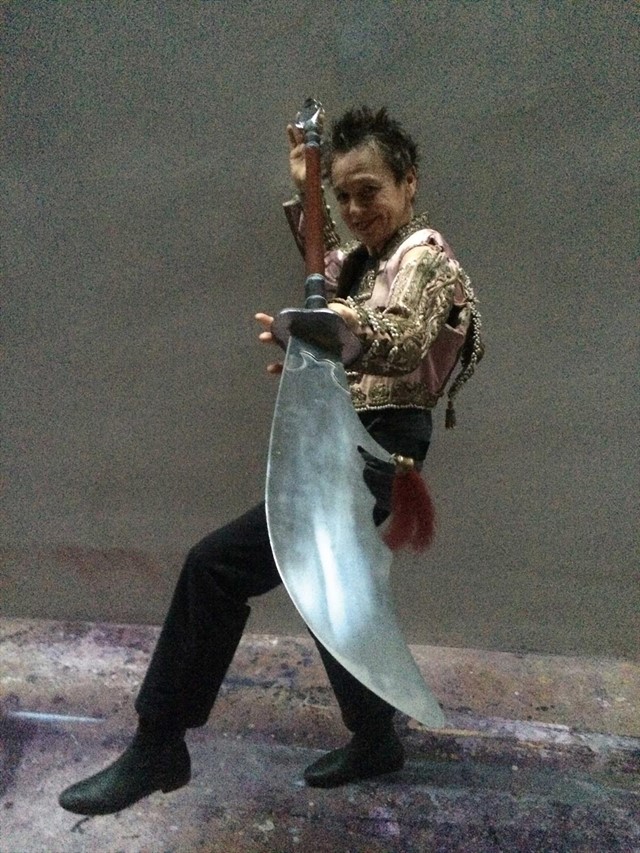
Read the full interview with Laurie Anderson in the latest issue of AnOther Magazine, out now.
